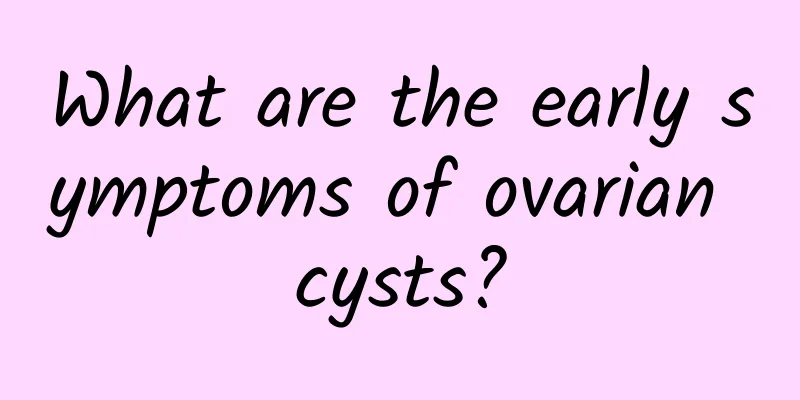What is ovulation bleeding?

|
Ovulation bleeding, also known as ovulation bleeding, refers to a small amount of vaginal bleeding that occurs during ovulation in the middle of a woman's menstrual cycle. It may be caused by ovulation, hormone fluctuations, endometriosis, cervical lesions, endocrine disorders, etc. If these conditions occur, it is recommended to seek medical attention in a timely manner. 1. Ovulation process: Ovulation bleeding may be caused by the rupture of small blood vessels on the surface of the ovary during ovulation. This situation usually does not require special treatment, just observation and proper personal hygiene. 2. Hormone fluctuations: Ovulation bleeding may be related to changes in estrogen and progesterone levels in the body. If the amount of bleeding is not large, you can wait and see. If the amount of bleeding is large or lasts for a long time, you can follow the doctor's advice to use drugs such as drospirenone ethinyl estradiol tablets, estradiol valerate tablets or progesterone capsules. 3. Endometriosis: If ovulation bleeding is accompanied by dysmenorrhea or other discomfort, it may be a manifestation of endometriosis. It is recommended to seek medical attention in time and receive treatment according to the doctor's advice, which may include the use of drugs such as danazol capsules, gestrinone capsules or goserelin tablets. 4. Cervical lesions: Cervical inflammation or polyps and other lesions may also cause ovulation bleeding. Regular gynecological examinations should be performed, and if necessary, cervical smear examinations or other related examinations can be performed. In terms of treatment, anti-inflammatory drugs or surgical treatment may be required depending on the specific situation. 5. Endocrine disorders: Endocrine diseases such as thyroid dysfunction and polycystic ovary syndrome may cause ovulation bleeding. You need to see a doctor for relevant examinations, such as blood hormone level tests. Treatment may include the use of drugs such as levothyroxine sodium tablets, metformin sustained-release tablets or spironolactone tablets. During the treatment of ovulation bleeding, you should follow the doctor's instructions to use the medicine and pay attention to the possible adverse reactions of the medicine. Maintaining good personal hygiene and avoiding excessive fatigue and emotional stress can help reduce the occurrence of ovulation bleeding. At the same time, regular gynecological examinations should be performed to monitor the health of the reproductive system. |
<<: What causes ovarian cysts and how to treat them
>>: What is the reason for repeated small amounts of bleeding after abortion?
Recommend
How to treat uterine fibroids How to treat uterine fibroids
Uterine fibroids are the most common benign tumor...
When is uterine fibroids considered serious? How to judge uterine fibroids
Generally, as long as uterine fibroids are found,...
Stringy discharge after sex
Notice that your discharge is stringy after sex, ...
How to cure female cervical erosion quickly? Chinese medicine remedies are effective in treating cervical erosion
Cervical erosion is a disease that many female fr...
Salad instead of meal? No starch for dinner? Beware of these 4 weight loss traps!
Trying to lose weight but not being able to do so...
What Chinese medicinal materials should not be eaten for uterine fibroids? What foods should not be eaten for uterine fibroids?
Uterine fibroids are a common gynecological disea...
There are several ways to diagnose ovarian cysts.
For women, only health can bring unparalleled cha...
What are the symptoms of mild cervical erosion? Three symptoms need to be vigilant
Cervical health needs to be taken seriously. Afte...
How long after a missed miscarriage can you have sex? What are the dangers of having sex too early after a missed miscarriage?
Because missed abortion is very harmful to women&...
Can saffron cause miscarriage? What effects does it have on pregnant women?
Whether saffron can cause miscarriage depends on ...
How to distinguish benign from malignant ovarian cysts? Will it affect female ovulation?
Many women know that ovarian cysts are a very com...
Is it a disease if I don't have my period at the age of 20?
Is it a disease if I don’t have my period at the ...
7 ways to stay active and fall in love with exercise
I hope you’re not lying on the couch, eating pota...
Not knowing the signs of ectopic pregnancy can cost you your life
Ectopic pregnancy is a disease that not only make...
What fruits to eat after miscarriage
Generally speaking, artificial abortion refers to...









